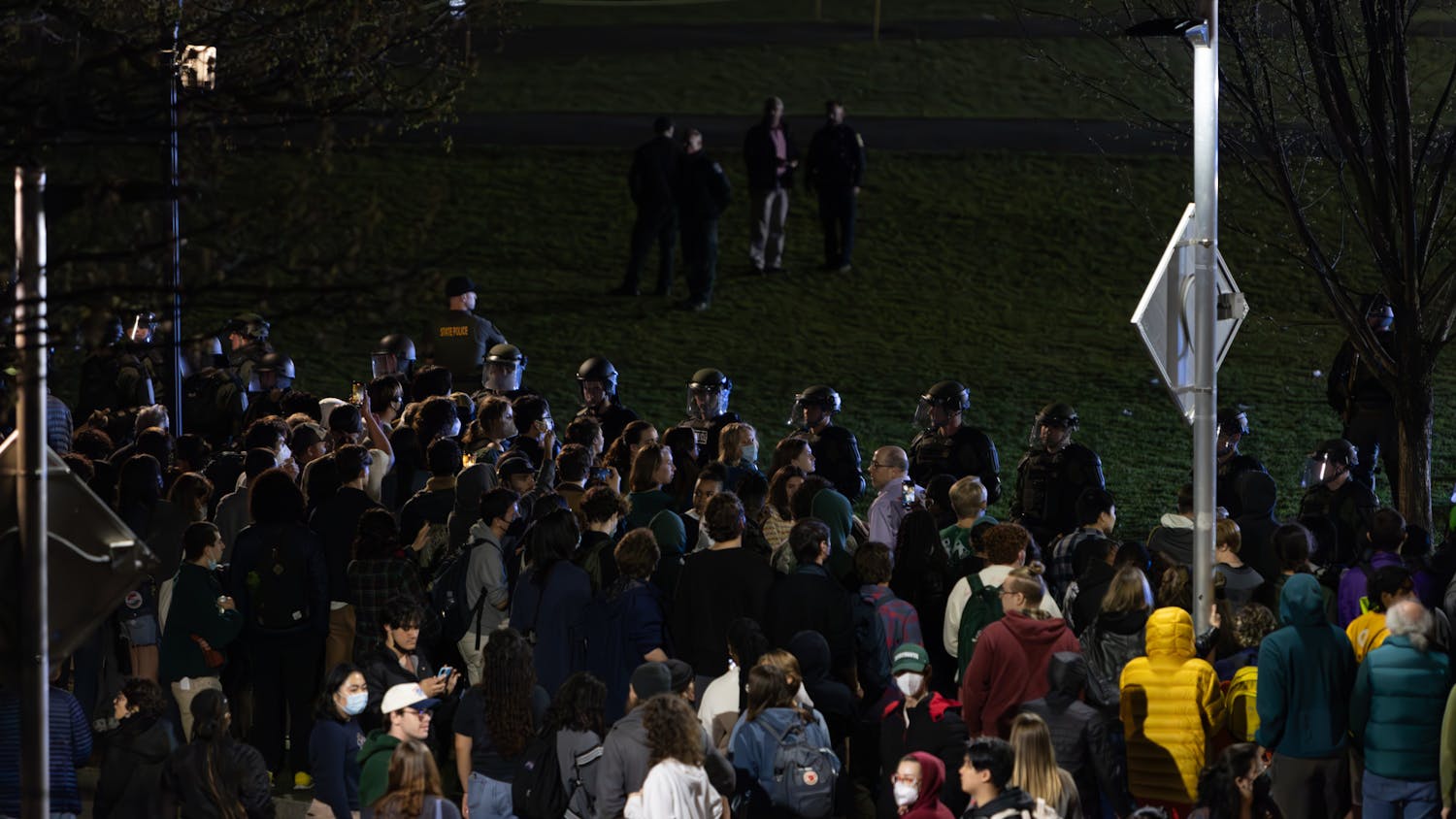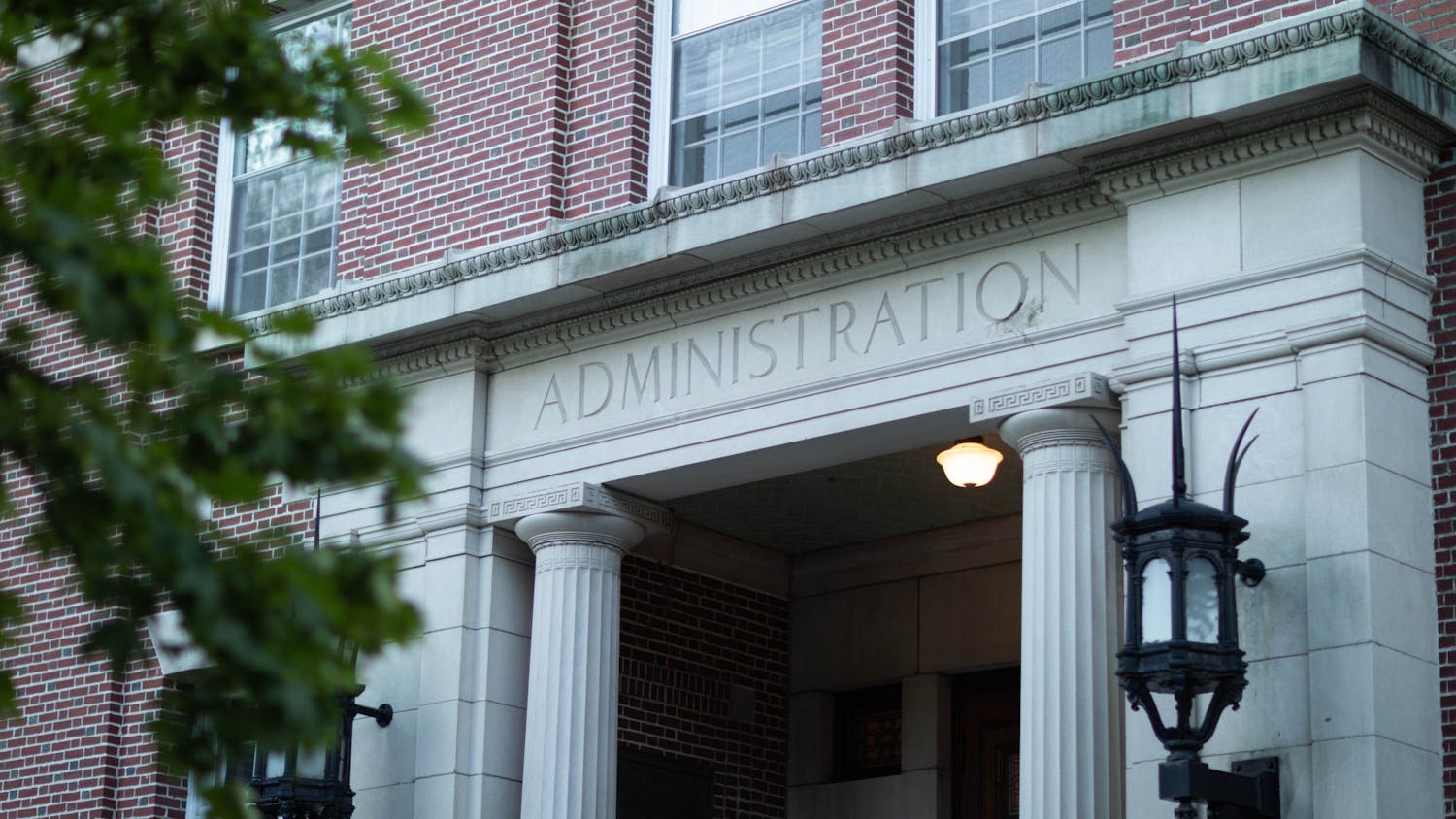With a green Dartmouth banner floating in the weightless background, Medical School Professor Jay Buckey spoke to students Saturday in a 10-minute teleconference from on board the Space Shuttle Columbia.
Buckey is the payload specialist on NASA's Neurolab mission, designed to research the effects of space on the nervous system.
Columbia, launched on April 17, is also carrying over 2,000 animals, including rats and crickets, for medical testing on Neurolab.
Buckey answered pre-arranged questions from seven students from the College. Earlier in the day, Buckey received the text of the questions, which discussed his work in space and the progress of the research.
Director of Instructional Services Michael Beahan said this was the first time the College has been linked with an orbiting shuttle. "I think it went very smoothly ... and the students seemed to get a lot out of it," Beahan said.
Biological Sciences Professor Victor Ambros said the conference required two telephone lines and a camera to send the students' images and questions to National Aeronautics and Space Administration headquarters in Houston. From there, a satellite link-up with the shuttle transmitted the information.
The students asked Buckey about many different areas of his nervous system research, from biological inner clocks to blindness in weightless environments to the effects on unborn embryos.
"Am I wrong in thinking that there will be no effect of gravity [on the brains of mouse embryos] since a developing organism in utero is simply floating?" asked Erica Brandling-Bennett '98.
Buckey responded, after a few seconds of transmission delay, that gravity affects areas, other than just weightlessness, which he believes do have an effect on developing embryos.
"Gravity also is responsible for convection necessary for development -- like in a lava lamp. A lava lamp wouldn't work in space," Buckey said.
In response to a question by graduate student Joshua Bassett about the effects on motor development of baby rats, Buckey discussed how rats born on this mission might turn out to be "space rats ... better suited for space than the environment on earth."
Daniel Alfonso '99, Kevin Hand '97 and graduate students Fang Liu, Yang Hong and Matthew Tullman also asked Buckey questions at the teleconference. Abigail Marsh '99 was scheduled to ask Buckey about the rats three-dimensional perception in space, but the strictly timed conference ended before she had the opportunity.
Prior to the transmission, Hand presented the audience with information on the Neurolab project and the research being done.
Ambros said Buckey discussed his desire to conduct the space teleconference with the College before Columbia launched. "He and some of the other astronauts wanted to do this with their last affiliated institutions."
Approximately 20 students, '01 parents and faculty members were gathered in the media center in the basement of Fairbanks Hall to watch the teleconference. The images from Columbia were shown on two large monitors.
Graduate student Kathleen Vohs said she thought it was a great opportunity. "I want to be an astronaut now," Vohs said.
"It was pretty amazing to talk to someone in space," Bassett said. "I would have like to have asked him more, but time was limited."
Earlier on Saturday, Buckey and the two other crew members from New Hampshire: Commander Richard Searfoss and Mission Specialist Rick Linnehan, spoke with Upper Valley school children in the Christa McAuliffe Planetarium in Concord in a similar style teleconference.
While on board the Neurolab, Buckey and his crew mates will experiment on the animals and themselves in order to obtain information about the effects from space on the nervous system. The information will be used in possible future missions to Mars which would necessitate long-term stays in space by astronauts.
Buckey received his undergraduate and medical degrees from Cornell University. Buckey moved from Hanover to Houston last June to begin training for the mission. He is currently on leave from the Dartmouth Medical School.



